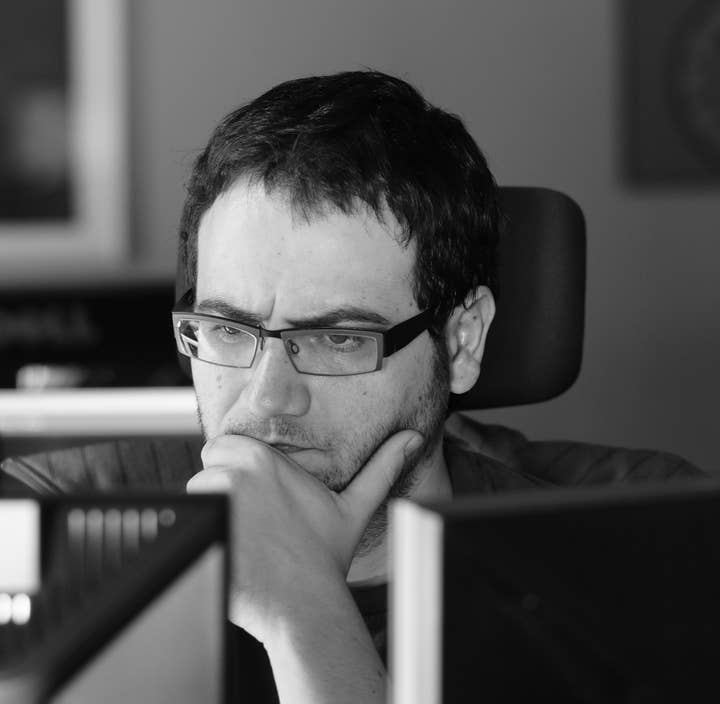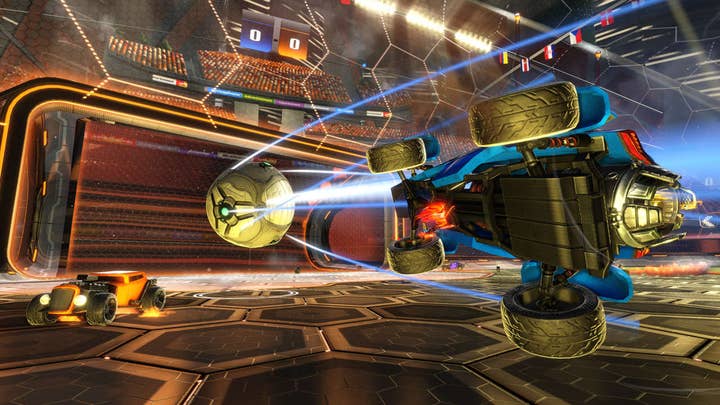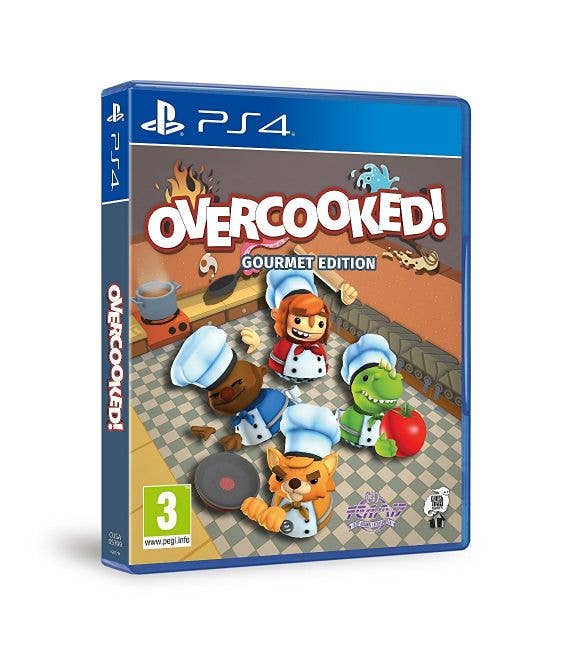Should indies release their video games in a box?
There's still money to be made in the old physical games market
There's a myth in the games business that consumers no longer buy boxed games.
Digital is certainly the growth area, with revenue from mobile, downloads and subscriptions accounting for 74% of the games market in the US (with a similar split in the UK, too).
However, the physical games market remains a lucrative proposition and worth billions of dollars every year. It's a fact that's gradually creeping its way into the minds of independent developers.
Last week, Stardew Valley was released in a box, as was Yooka-Laylee. In the coming weeks, Tequila Works is preparing two boxed products for Rime and The Sexy Brutale. There are several businesses that are set up to help indie studios release their games in places like GameStop and GAME, such as U&I, 505 Games, Sold Out and Badland Games. Other publishers include physical distribution as part of their key selling points, such as Bandai Namco, Koch Media, GameTrust (GameStop's publishing arm) and a stream of others.
Yet it's a risky area to invest in. Boxed products are costly and lack the flexibility of the digital marketplace. Going through retail also loses some of that direct contact with the customer. So why bother?
"Many gamers - us included - love to keep their physical copies and retail is still a big market," says Tequila Works' CEO and creative director Raúl Rubio.

"We are working with partners who are physical distribution specialists, we will not be able to do it ourselves. Doing a physical release helps us to provide to our core fans collector's editions, where they can have access to more content on the game, it does also helps us to reach an audience of more casual gamers who still prefer to buy their games in physical rather than digital. Finally, a physical release is a way to offer more visibility to our titles."
There are other reasons, too. One of the most romantic reasons is that developers simply like seeing their work on a shelf in a shop. That was certainly the feeling for Ghost Town's Phil Duncan when Team17 and Sold Out approached then about releasing Overcooked at Retail.
"We were surprised," he says. "We just thought we were making a small indie game, and releasing it in the conventional way via the digital stores. It was interesting meeting the guys from Sold Out, and realising just how big that market still is. We wanted it from our point-of-view, because it would be great to see it in a box and on shelves at GAME. But I didn't realise what the demand was like for it.
"There are lots of people out there, my parents included, that when looking to buy a game, they would go to GAME, or Argos. It also came out at Christmas time, so it's good for giving as a gift. I got my brother a voucher from the Humble store, and I did feel kind of bad printing out this little bit of paper."
Yet what about the commercial results? Like anything, the figures paint a mixed picture. There are some notable success stories, of course, such as Terraria, Minecraft and Rocket League. The latter has remained in the UK Top Ten since it launched last summer, and has sold well over 1m units in the physical space alone - that's despite the digital version of the game arriving a full year prior.

Both Overcooked and Rocket League were ideal candidates for the boxed market. These games boast broad appeal, which includes the sort of consumers that may not even be familiar with how the digital marketplace works.
"[Rocket League's] appeal to players of all ages is a major factor," says Psyonix's publishing VP Jeremy Dunham. "Despite our high skill ceiling, we believe that our game is still very friendly to kids and families because of its lack of violence and simple concept. When you're talking about reaching out to younger gamers, though, you're also talking about reaching people who do not yet shop with credit cards or similar payment methods usually associated with digital-only games - you need to be accessible to fans who only have cash or are only aware of games they see on the shelves as opposed to being online.
"There's a high percentage of console gamers that still buy physical copies of games and not digital
Jeremy Dunham, Psyonix
"Even when you don't factor that in, there are still the logistics of it all. There's a high percentage of console gamers that still buy physical copies of games and not digital, so it just makes business sense to be available to them in as many ways as possible."
Dunham adds that some of the gamers that are buying Rocket League are existing fans but it's "mostly a new audience", based on its internal data.
Nevertheless, the fact that even some of Rocket League's players bought a boxed version of the game - despite already owning a digital copy - highlights the demand from certain players for physical goods.
What's more, Tequila Works feels that retail doesn't have to just be for mainstream or blockbuster games. Rubio says that High Street shoppers are interested in all forms of content. "We think that gamers have matured," says Rubio, "and they enjoy indie and deeper experiences, and they definitely deserve a place on the shelf of a collector."
Ultimately, says Sold Out's Garry Williams, it's down to how good product is: "Like any sector of the games market, quality games sell."

However, there are some deterrents to releasing a title physically. There's the upfront cost, for starters, plus restrictions around pricing. There is a rule that the physical version of a boxed console game must cost the same as the digital SKU. Retailers won't be happy selling a game that's significantly cheaper on PSN or Xbox Live. Therefore, if a developer wants to charge more for a box version (to compensate for the extra distribution costs) than its digital counterpart, then the studio is often forced to create extra content for it.
"That was why, when we released [Overcooked] in August, we were still working ridiculously long hours on the game," explains Duncan. "The game was out, but we were trying to get this DLC done because that was going to be included as part of the disc version, so that the price matched the downloadable version."
Indeed, Sold Out admits that the pricing difference between digital and physical can be troublesome.
"Publishers are here to remove all the complications of a boxed release
Garry Williams, Sold Out
"The fact that the digital sweet spot for sales is at $14.99, and that due to format holder royalties nothing released under $19.99 is likely to make you significant revenues, focus on what you can afford to deliver - perhaps adding DLC for a higher boxed price swiftly if digital has proved itself numbers wise," Williams explains. "It's all about maximising the sales so let the consumer decide how they want to buy the game, ideally boxed and digital should go hand-in-hand."
He continues: "Creating a boxed game might seem daunting but developers shouldn't be put off. Publishers are here to remove all the complications of a boxed release. This frees up mindshare at the studio to prioritise delivering the best gaming experience to the consumers on any format."
Rubio concludes: "There's no easy answer. It requires a lot of work to find the right partners in each territory and negotiate distribution agreements. The situation for Rime and The Sexy Brutale were different. For Rime, our publisher Greybox is handling all the distribution of the game. For The Sexy Brutale, we are working with Badland Games for Europe, U&I in the US, and various partners in Asia."
Clearly not every game can work in a box, and if you're not careful, a physical release can end up costing a business dearly if you get the numbers wrong. However, with the likes of GameStop and GAME having to endure barren periods in terms of new game launches (such as this month, for instance), and with discoverability proving a never-ending challenge in the digital marketplace, the boxed games market may be an avenue worth exploring.
